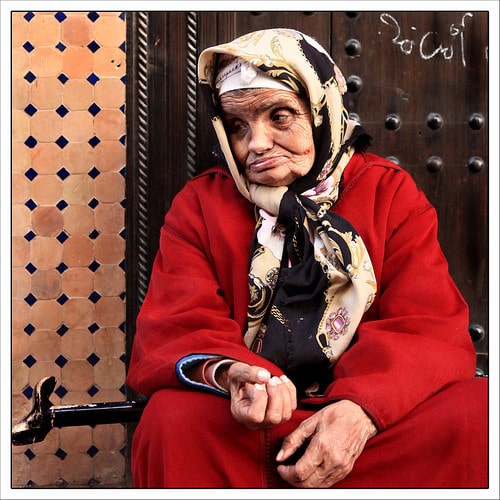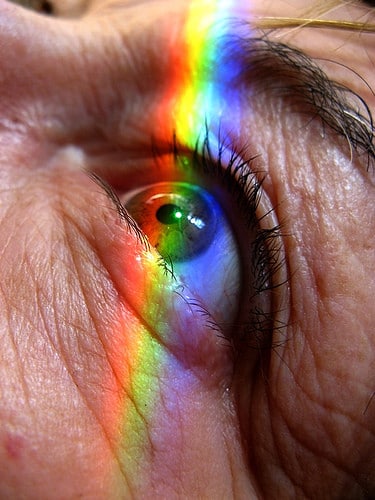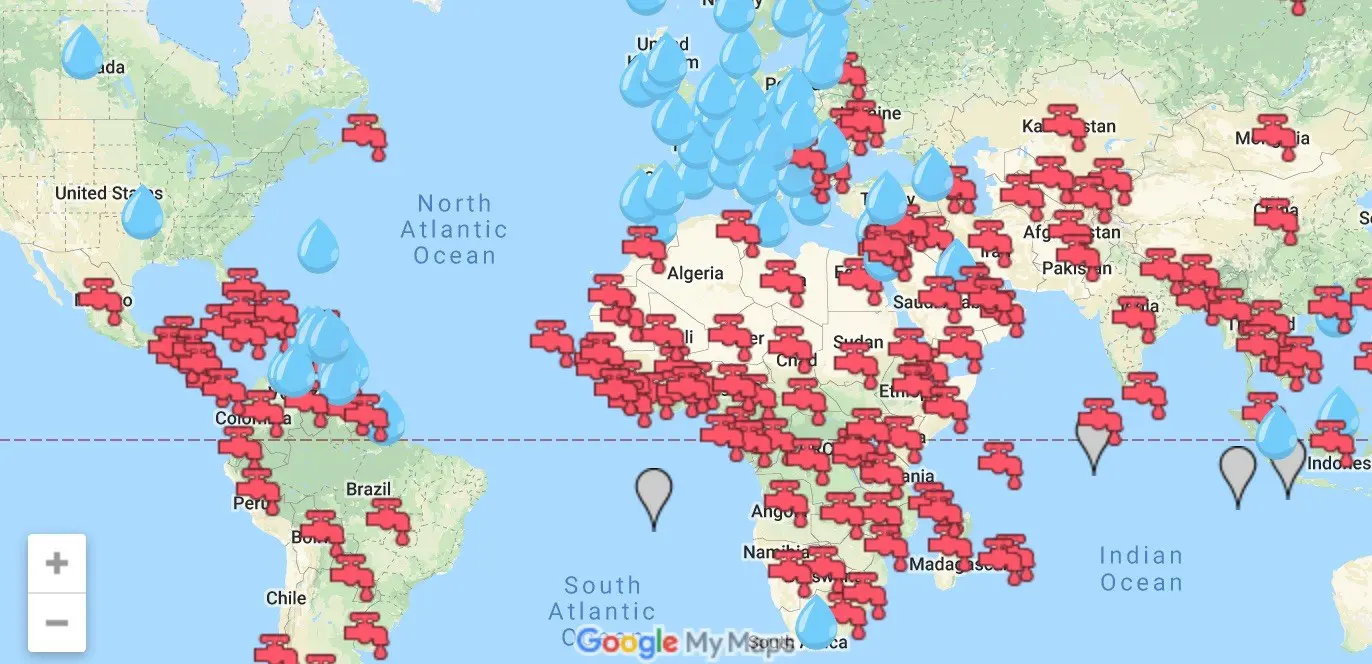 Travelers sometimes associate poverty with authenticity and seek those with less to see more. When you travel to a place, are you missing out on what is ‘real’ if you don’t see the poorest parts of a city or country? There is often the discussion over different types of travelers and “real travel”; but does seeing poverty bring you any closer to reality?
Travelers sometimes associate poverty with authenticity and seek those with less to see more. When you travel to a place, are you missing out on what is ‘real’ if you don’t see the poorest parts of a city or country? There is often the discussion over different types of travelers and “real travel”; but does seeing poverty bring you any closer to reality?
Talking About Real, Literally
Travelers by definition don’t stay in the same place for too long and the longer they do, the more of a local they become. It’s possible to travel slowly to capture the feel of a given place, but in essence you have to stop traveling to achieve that state.
Most people who travel to a place stay for a short period of time and attempt to unravel a culture in a few days or weeks, searching for an absolute truth about a city and its inhabitants. It’s as if the well off places are dreams and everything else is reality when in fact it’s all real.
 Spectrum
Spectrum
To understand a people culturally you have to look at the spectrum of classes and lifestyles, not just a single one. Places and people that are poor (in terms of material wealth) aren’t any closer to an absolute truth than anyone else.
In many ways, culture is independent of wealth and income – poor and rich people adapt to an environment within a shared cultural context. You may see how hard the life of a porter is but the life of an accountant in that same city is just as authentic as anyone else’s.
The Human Condition
I’m living in the medina, or old city, of Marrakesh at the moment and everyone is telling me how much of the ‘real life’ I’m seeing although I’m not convinced. As a place, group of people, or individual improves their living conditions, they do so within the framework of their culture.
- It’s all real – as the economic condition of Morocco or Thailand improves, it does so with an Arabic or Thai touch to it. When and if these (and other) places Westernize, they will in their own way partially because they view the West differently. The West isn’t incorporating those places, those places are incorporating the West in a very unique way.
The reality travelers are searching for consists of the human element. We want to know what makes us, Homo sapiens, at the core, human. We’re all human and real whether we’re rich or poor, which is something you can only see when you witness and live within both.
[photos by: Paul Alsop, PhOtOnQuAnTiQuE]












Poor places aren’t any more real than affluent places. It’s entirety is what emcompasses the culture and the people because it serves as a reflection of the society as a whole. The only places that might not reveal that are places where you spend your entire “travel” experience at a beach front resort. Those are the places where I’ll question the authencity of a place or culture.
Staying in just a resort reminds me a bit of being a fish in a small bowl. You can see a bit of the outside – rich and poor – but not witness either since it’s so removed from the culture of a given spot.
poor places maybe a novelty for people from rich countries, whereas rich places are a novelty for people from poorer countries like mine. 🙂
Interesting point and a good flip (no pun intended) of the point in the post. I do think that the opposites seek each other out, but I don’t know if they tend to avoid what’s familiar. You’ve got to see both I think.
Anil, one of the best posts I’ve read of yours. I think many people (maybe “recreational” travelers?) travel superficially. Get in, get out, get on with your life. They avoid the poor places so as not to have to think about the abject poverty that truly exists in some parts of the world. They hover in the more well-to-do areas … perhaps primarily to avoid having to do do without certain amenities they “just can’t live without.” The faulty assumption is that the poor people are not happy and that the rich people are.
Another thought for US travelers – the rich places are the ones most like America, because people try to emulate our way/standard of living. If you’re going to visit a (rich) place that’s becoming more like America, what’s the point of traveling?
Thank you very much Rod. I wrote and rewrote this one many, many times before feeling it was ready to go.
When watching the old city here in Marrakesh bubbling with people and activity, I can’t help but wonder what all of the tourism and money will do to the place. Does it inevitably change or will it continue to stay the same as it has for years? I’d hate to see it go but my feeling is that it won’t last.
I don’t know if I ever though that wealth has anything to do with culture. I travel to see culture…but you can see culture anywhere – you do have to stick around long enough though to let it seep into you so you can understand it. Each area and ethnicity and group has things that make it unique – trying to see and find those things are my quest. Even while I’m in America (my own culture) I find it fun and challenging to find the uniqueness about the various cultures here – the suburbs, the big cities, the north, the west coast…it all varies greatly…you just have to open your eyes and your mind.
Culture is one of the primary reasons I travel too and I agree – it’s everywhere, not hidden within a particular group.
A very well thought out post, Anil. The fact is there’s class stratification in every single country, even the poorest ones, which isn’t always measured by money, but status. I’m on board with Monica, resort hopping is viewing things in a bubble, a self-created one at that. Resorts seem to recreate factors that *we* already know, but thrusting oneself into a country’s extremes: poor or rich, is exposing yourself to their conditions or culture. I’m the type of traveler who’s open to everything, a holistic sense of a destination. I may not always be comfortable in my quest, but that’s part of the experience. That’s my idea of authentic.
Resorts also tend to isolate travelers from places which isn’t a good way to see much of anything, if that’s the aim of a particular trip. Like you say, they’re trying to recreate their interpretation of your (wherever most of the tourists are coming from) culture.
Interesting thought though I have never associated the two until I read your post. I prefer to travel to places that are different to Australia (not necessarily richer or poorer). Going to NZ or USA or Canada or the UK is not much change from Australia. Sure there are little differences but not much more than that. Going to Africa or South America or SE Asia or mainland Europe (limited cost of life difference here) I feel much different to Australia – less familiar history, culture, way of life. Saying that, I do think that poorer places in some cases have been ruined by tourism where people seek the riches that tourism provides by trying to provide a taste of their home life rather than their place/culture/life. Egg and bacon breakfasts on a Thai beach, fishing villages becoming beach resorts, cringe-worthy, joyless “cultural” dance shows in 5-star western hotels. Great thought-provoking writing.
The idea and thoughts on the connection came to me after hearing some comments this past week and made me think – isn’t every local a local?
What an thought provoking post Anil – I tend to align with the view that others have made – that it’s not the fact that a place is poor per se, but that for an American it is likely much farther from our culture…and that can often be more engaging and challenge travelers more – and not just challenge physically, but points of view, conceptions, and beliefs…and that’s a big reason I travel. I imagine that Dubai would give me an incredibly intense travel experience and it’s pretty wealthy!
Didn’t think about how the ‘gap’ plays into it all, but I think how we experience real is very much tied to it.
Interesting post. It made me think of our own travel as we spend a lot of time in developing countries along our journey. I do think that as travelers we are drawn to cultures that are more different than our own. Coming from a developed country (United States), I’m attracted to chaotic streets, colors, music, smells and food very different from my own – it’s the stimuli that almost becomes a traveler’s drug.
One of the reasons why we are drawn to markets in many countries is that you find a cross-section of people there since EVERYONE shops in markets. However, in other countries where supermarkets are taking over traditional shopping habits, the fresh market is usually full of lower class. We have fallen into the poor people being more “authentic” than the rich, but having been fortunate to spend time with people of higher and lower classes in countries in Central Asia and Central/South America I see I was wrong. Their lives and dreams are just as “authentic” as those of the vendors in the marketplace.
I realize I’m rambling…thanks for the food for thought.
I enjoyed your comments, not rambling at all!
BRAVO!! This was an insightful post. As you said, whether you visit the poverty stricken part of town or the rich part of town- they are both real- just different sides of the coin. Does one side of the coin make the coin more real than the other side- no- it is just a different view.
“Most people who travel to a place stay for a short period of time and attempt to unravel a culture in a few days or weeks, searching for an absolute truth about a city and its inhabitants.”– this part of your post jumped out at me- this is something which often ‘irritates’ me about those who travel. The thought that they can stay somewhere for a few days, weeks, or months and be able to figure out everything about the culture of the place.
What seems to be the case is – the ones with the most opinions about culture are the shot term stayers- those who live for a few years or more in a place usually admit that they know “NOTHING”- haha!
Culture is so fabulously complex – as someone who studied anthropology in school it bothers me a bit when people don’t appreciate how intricate it really is. During a trip maybe the idea of “figuring it out” makes a visit feel more complete somehow. For me personally, seeing a new place or people is just like getting a glimpse of a new universe for a moment like a flash and knowing what I’ve seen is a very thin slice of it all.
Hey Anil –
The interesting thing is that I’ve always associated the poor with enjoying a higher level of happiness in most of the third-world destinations I’ve visited. I am repeatedly fascinated when discovering poverty-stricken communities full of the most generous, happy, caring, good-hearted people imaginable.
And even though I completely agree that the more affluent segment of any culture is without a doubt as equally authentic, I often prefer to try and interact with that poorer segment who continues to teach me such valuable life lessons.
Fantastic post by the way!
Thank you Earl. Somehow I feel that seeing poor conditions connect us with something that once more of us shared. Living off the land, helping the community at large, and appreciating what we do have – not to romanticize it but sometimes it’s as modern life disconnects us with things that are at the core human qualities.
I agree wholeheartedly with the premise of your post. I think you need to see all aspects of a country to “understand” the people fully. Not one class is more culturally rich than another. However, what I’ve found a lot in my travels is that the wealthier sector of people tend to become more “Westernized.” Whether that’s good or bad, I’m not going to make that judgment. But, as a Westerner I’m not really interested in learning about my culture. I guess it is interesting to see how it’s been blended with my culture…, but anyway I usually end up spending more time with the less financially blessed since they tend to retain their culture more.
That connection has me thinking, thanks for bringing it up!
Interesting post – I think that poor places are just so much more different than travelers are used to… It opens our eyes to the way that life could be lived without all the amenities we have nowadays.
I guess it shows what we really need to get on with and how much useless stuff modernization puts in front of us.
You have a goo point. Everyone (especially backpackers) always want to experience ‘the real’ part of the country, but who’s to judge what’s real? What’s there is there, right?
I think it’s fine with countries to westernize, if the people there are ok with it. I DO NOT AGREE at all with what’s happening in Sarawak Borneo, where the Penan tribes are fighting for survival against the Malaysian government who tells them that they need to stop living in the jungle in their ancient lifestyle. Westernizing people against their will is totally going to destroy them.
I was thinking the same thing when the idea hit me, what’s there is there too. I haven’t read about the Penan tribes but you’ve made me curious now to read more, thanks for bringing it up.
I agree with your core point. My sense is that often in poorer neighborhoods the culture’s traditions are more strongly entrenched and recognized. Affluence provides mobility, especially in terms of the movement of culture across cultures.
Less external influence – maybe that’s how or why tourism can change local cultures.
it´s not wealth that will dictate how interesting a place can be. Every place has a culture, even if it mixed and has incorporated other cultures. Even if countries westernize, they will have their own cultural touch.
Great post!!!
Thanks Adriana, I like the way you put it 🙂